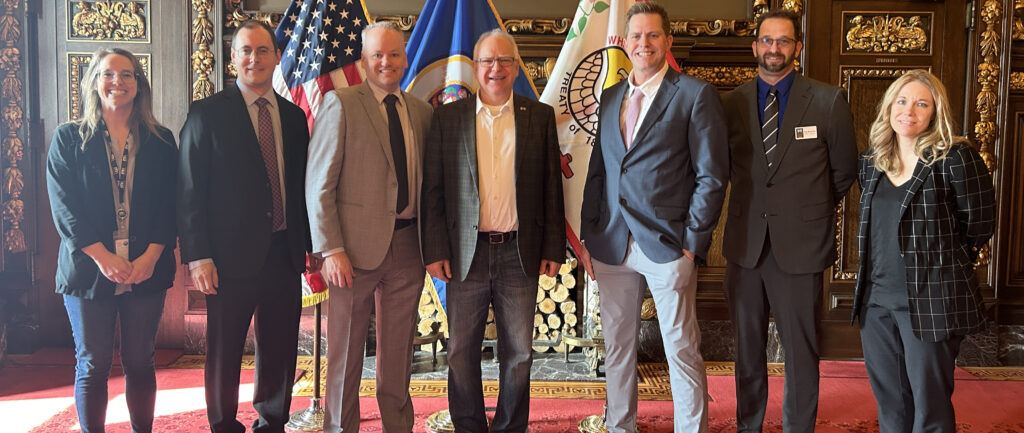A broad coalition of biofuel and farm advocates, including the Minnesota Soybean Growers Association (MSGA), have sent a letter to the White House this week imploring President Trump to fix a flawed proposal from the Environmental Protection Agency (EPA), which “fails in its mission to reinvigorate farm economies and reopen biofuel plants across America’s heartland.” The letter was signed by 60 organizations, including the American Soybean Association (ASA) and 17 state soybean affiliates.
“We felt it was important to our members that we join together with other commodity groups to show our united support for the RFS,” says MSGA President Jamie Beyer. “Hopefully our message gets through to the president and we can see a quick resolution to this issue. Time is of the essence.”
The letter notes that the EPA’s draft plan undermines the administration’s commitment to restore integrity to the Renewable Fuel Standard (RFS) and accurately account for biofuel demand destroyed by Small Refinery Exemptions (SREs).
“The flawed proposal swaps out a critical component of the SRE remedy sought by farmers and the biofuels industry,” wrote farm and biofuel leaders. “Instead of recovering the gallons exempted by EPA, it proposes to recover only those gallons previously recommended for exemption by the U.S. Department of Energy (DOE). This one EPA modification converts a commitment to fully account for SREs into a bureaucratically uncertain path that recovers only one fraction of those gallons lost to SREs and could result in RFS backsliding in 2020. This lack of certainty sabotages efforts toward market recovery and will stop biorefineries from reopening.”
Since a two-percent biodiesel blend (B2) became law in 2002, Minnesota has been the national leader in biodiesel. As the first advanced biofuel recognized by the U.S. EPA, biodiesel contributes nearly $1.7 billion to Minnesota’s economy, adds 5,400 jobs to the state, and increases the value of soybeans by an estimated 63 cents per bushel. It’s also an environmental winner, helping reduce greenhouse gas emissions by removing the equivalent of 230,000 cars from Minnesota’s roads each year. With the move to a 20 percent biodiesel blend (B20) in 2018, Minnesota remains at the forefront of renewable fuel use in the U.S.
“For more than a decade, biodiesel has been a proven economic generator for Minnesota,” says Mike Youngerberg, executive director for the Minnesota Biodiesel Council. “Ultimately, for biodiesel to prosper, we need the Trump administration to fully support and implement the RFS as it was laid out by the US Congress in their passage of the Renewable Fuel Standard in the Energy Independence and Security Act of 2007.”







